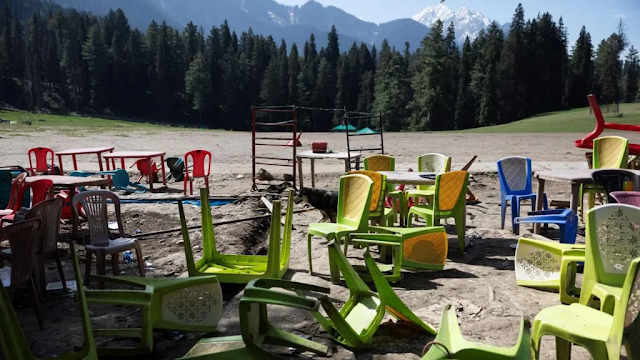From the Shadows to the Spotlight: Pakistan's Army Chief Gen Asim Munir Steps into a Defining Role
In his late 50s, General Asim Munir comes from modest beginnings—the son of a school principal and religious scholar. He entered the Pakistan Army in 1986 through the Officers Training School in Mangla, where he earned the prestigious Sword of Honour, awarded to the top-performing cadet. He was commissioned into the 23 Frontier Force Regiment.
Over a nearly 40-year military career, Gen Munir has held critical command roles, including leading forces along the tense northern border near Kashmir, heading both of Pakistan’s top intelligence agencies, and serving in Saudi Arabia to strengthen military ties.
He holds a master's degree in public policy and strategic security management from the National Defence University in Islamabad and has also trained at military institutions in Japan and Malaysia.
I first saw Gen Munir in Islamabad in 2023, in a hotel hall brimming with government officials, diplomats, generals, and journalists. Dressed in civilian attire, he exuded quiet authority as he approached the podium. He began his speech with a Quranic recitation—a gesture that underscored his unique standing as a hafiz, someone who has memorized the Quran in full, a rare distinction among Pakistan’s military elite.
In person, he appeared courteous and reserved. But on stage, he commanded attention, projecting the composed intensity of a former intelligence chief—a man trained to observe, analyze, and act with precision. Now, his words carry weight far beyond Pakistan’s borders.
Gen Munir assumed the role of Chief of Army Staff in November 2022, at a moment of deep political turmoil, economic crisis, and mounting public frustration with the military’s influence in civilian affairs.
His appointment followed a period of speculation, largely driven by his strained relationship with then-Prime Minister Imran Khan. Munir had served briefly—just eight months—as the head of Pakistan’s powerful Inter-Services Intelligence (ISI) before being removed by Khan, in what many believe was a politically motivated dismissal. Although both parties deny personal grievances, that episode marked a significant rupture between them.
Today, with Khan behind bars, Gen Munir holds unprecedented power in a country where the military often shapes the political landscape.
Observers see Munir as markedly different from his predecessor, General Qamar Javed Bajwa. Bajwa adopted a more public and diplomatic approach, pushing backchannel efforts with India and carefully managing a major 2019 military standoff. His so-called "Bajwa Doctrine" emphasized regional stability and economic priorities alongside traditional security imperatives.
Following the Pulwama suicide bombing in Indian-administered Kashmir in 2019, Bajwa responded with military restraint, opting to return captured Indian pilot Abhinandan Varthaman—an act that helped defuse a potential war.
“Bajwa was pragmatic,” says Abdul Basit, senior fellow at Singapore's S. Rajaratnam School of International Studies. “He kept diplomatic lines open while managing challenges in Kashmir, Afghanistan, and U.S. withdrawal policies.”
In contrast, Basit says, Gen Munir faces mounting pressure to act decisively. “He’s inherited a volatile mix—rising militancy, political upheaval, economic instability, and worsening regional dynamics. He doesn’t have the luxury of slow, calculated strategies. He needs fast, firm responses—both domestically and internationally.”
As Pakistan navigates this period of uncertainty, Gen Munir’s leadership style and decisions could shape the country’s trajectory—and its relations with neighbors—for years to come.




0 Comments